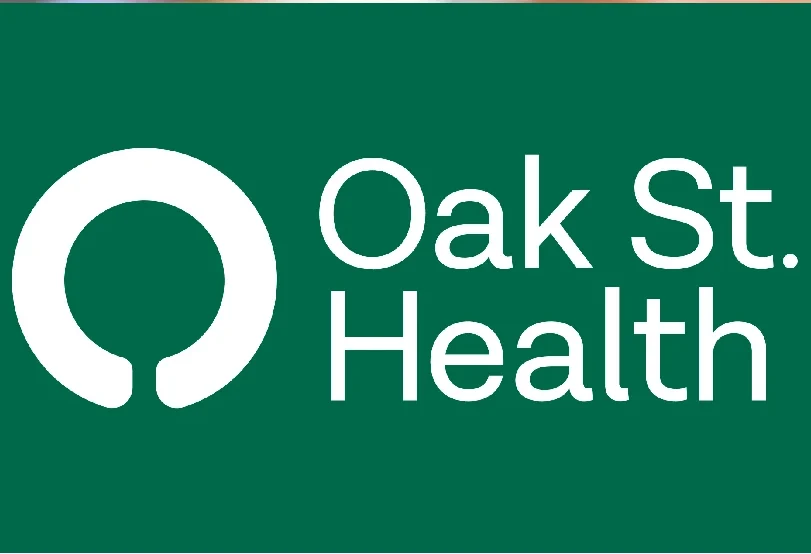
Discover you or a loved one is exploring better primary care options for seniors, you’ve probably come across Oak Street Health. Known for its patient-centered approach and focus on older adults with Medicare, Oak Street Health has become a key player in reshaping how primary care is delivered in the United States.
This guide breaks down what Oak Street Health is, how its model works, what services it offers, its advantages and drawbacks, and how to decide if it’s the right fit for you or your family.
What Is Oak Street Health, and How Did It Start?
Oak Street Health is a network of primary care centers designed specifically for adults on Medicare or dual Medicare–Medicaid coverage. It was founded in 2012 in Chicago by three visionaries — Mike Pykosz, Griffin Myers, and Geoff Price — who shared one mission: to rebuild healthcare around the needs of the patient, not the system.
Since its founding, Oak Street Health has grown rapidly across the U.S., opening hundreds of centers in underserved urban and rural areas. The company focuses on preventive, comprehensive, and community-based healthcare rather than the traditional reactive model.
In 2023, Oak Street Health was acquired by CVS Health, a major milestone that expanded its resources and reach nationwide. The merger aimed to bring more seniors under value-based care, a model that rewards quality and outcomes instead of the number of visits or procedures.
How Does the Oak Street Health Care Model Work?
At its core, Oak Street Health runs on a value-based care model. This means doctors and care teams are paid to keep patients healthy — not for how many appointments they schedule. The focus shifts from quantity to quality.
Here’s what makes the model unique:
Smaller Patient Panels and Team-Based Care
Traditional primary care physicians often handle more than 2,000 patients, which limits their ability to build strong relationships. At Oak Street Health, each doctor manages around 500 patients. This smaller panel size allows longer visits and personalized care.
Every center operates with a multidisciplinary team that includes doctors, nurse practitioners, social workers, behavioral health specialists, and care managers. Together, they coordinate care to address physical, mental, and social health needs.
Integrated Physical, Behavioral, and Social Care
Oak Street Health doesn’t treat health as only physical. The model integrates behavioral and social services, helping patients manage depression, anxiety, loneliness, transportation barriers, and even food insecurity.
This holistic approach ensures that no part of a patient’s well-being is overlooked.
Focus on Medicare and Dual-Eligible Patients
Most Oak Street Health patients are seniors on Medicare or people eligible for both Medicare and Medicaid. These groups often have complex health needs and benefit the most from consistent, preventive care.
The clinics take on financial risk for each patient, earning if they keep patients healthy and out of the hospital, they save costs and share the benefits.
What Services Does Oak Street Health Provide?
Oak Street Health’s services go far beyond the typical doctor’s office. Their centers are designed to be welcoming, community-oriented, and easy to access.
Here’s what patients can expect:
Preventive and Wellness Care
The team provides regular wellness visits, health screenings, immunizations, and lifestyle counseling to help patients stay healthy before issues become serious.
Chronic Disease Management
For patients living with diabetes, heart disease, COPD, hypertension, or mental health conditions, Oak Street Health offers close monitoring and treatment plans. The team ensures medications are managed properly and specialists are looped in when necessary.
Telehealth and In-Center Services
Many centers offer telehealth visits, on-site labs, podiatry, EKGs, gynecologic exams, and pharmacy consultations. Some even provide home visits or transportation for patients with mobility issues.
Community and Social Support
Unlike most clinics, Oak Street Health hosts events and wellness activities to help seniors stay socially active and connected. From health workshops to community gatherings, the centers encourage belonging and reduce isolation.
What Are the Benefits of Choosing Oak Street Health?
Thousands of patients have joined Oak Street Health because it offers something many seniors rarely experience in healthcare — time, attention, and genuine care.
Here are the key advantages:
Stronger Patient-Provider Relationships
Because doctors have fewer patients, they can spend more time with each one. Many seniors report feeling heard and understood, a refreshing change from rushed, impersonal appointments.
Better Health Outcomes
The value-based model incentivizes prevention. As a result, Oak Street Health patients often experience fewer emergency room visits and hospital stays. Data from the company’s studies shows a noticeable reduction in hospital admissions compared to national Medicare averages.
Serving Underserved Communities
A major part of Oak Street’s mission is to bring quality healthcare to neighborhoods that have historically lacked it. Many centers are located in areas where seniors face transportation, financial, or access challenges.
Whole-Person Care
By addressing physical, mental, and social needs, Oak Street Health helps patients improve overall quality of life — not just manage symptoms.
What Should You Consider Before Joining Oak Street Health?
While Oak Street Health offers an innovative approach, it’s not perfect for everyone. Here are a few factors to weigh before making a decision:
Insurance and Network Compatibility
Oak Street Health accepts Medicare and many Medicare Advantage plans, but not all. You’ll need to confirm that your specific plan and preferred specialists are covered.
Availability and Wait Times
In some regions, new patients might face longer wait times for appointments, especially in high-demand locations. Calling ahead or scheduling early is often necessary.
Different Care Experience
If you prefer a more traditional, fast-paced doctor’s office, Oak Street’s slower, relationship-based approach might take some getting used to. It’s best suited for those who value ongoing, team-based care.
Mixed Reviews
While most patients report positive experiences, a few online reviews mention scheduling delays, communication issues, or billing confusion. It’s smart to visit your local center, ask questions, and get a feel for the staff and setup before enrolling.
Is Oak Street Health Right for You (or Your Loved One)?
Deciding whether to join Oak Street Health depends on your healthcare goals, lifestyle, and insurance coverage. Here are some key questions to help you decide:
-
Do you have Medicare or a Medicare Advantage plan accepted by Oak Street Health?
-
Is there a clinic conveniently located near your home?
-
Would you benefit from longer visits, a care team, and proactive wellness checks?
-
Do you prefer a preventive approach to health, or a traditional reactive one?
-
Would you like access to transportation help, community programs, or social activities?
If your answer is “yes” to most of these, Oak Street Health could be a great match. It’s especially beneficial for seniors seeking consistent care, better coordination, and a more personal connection with their healthcare team.
Frequently Asked Questions (FAQ)
1. Does Oak Street Health accept Medicare Advantage plans?
Yes. Oak Street Health works with Original Medicare, Medicare Advantage, and many dual-eligible Medicare–Medicaid plans. Always verify that your plan and local clinic are compatible.
2. How is Oak Street Health different from a regular doctor’s office?
Oak Street Health focuses on smaller patient loads, longer visits, and team-based care. You’ll likely see both a doctor and other care professionals who coordinate your health holistically.
3. Can I still see specialists if I go to Oak Street Health?
Yes. Your Oak Street team will refer you to specialists when necessary and help manage communication between your doctors to ensure seamless care.
4. Does Oak Street Health cost more than other clinics?
Typically, patients pay the same Medicare co-pays and deductibles they would anywhere else. However, Oak Street Health’s preventive approach can help reduce expensive emergency visits and hospital stays in the long run.
5. What happens if I move to another area?
If you move somewhere with another Oak Street Health center, you can transfer your care easily. If not, your care team will help transition you to another suitable provider in your new area.
Final Thoughts
Oak Street Health represents a refreshing shift in senior healthcare, one that emphasizes relationships, prevention, and community. It’s not just a clinic; it’s a network built to help older adults live healthier, happier, and more independent lives.
If you’re on Medicare and looking for a provider that treats you as a whole person, not just a number on a chart, Oak Street Health is worth serious consideration.
Before enrolling, take a tour of your local center, confirm insurance details, and talk with current patients. The right healthcare partnership can make all the difference in your well-being and peace of mind.


